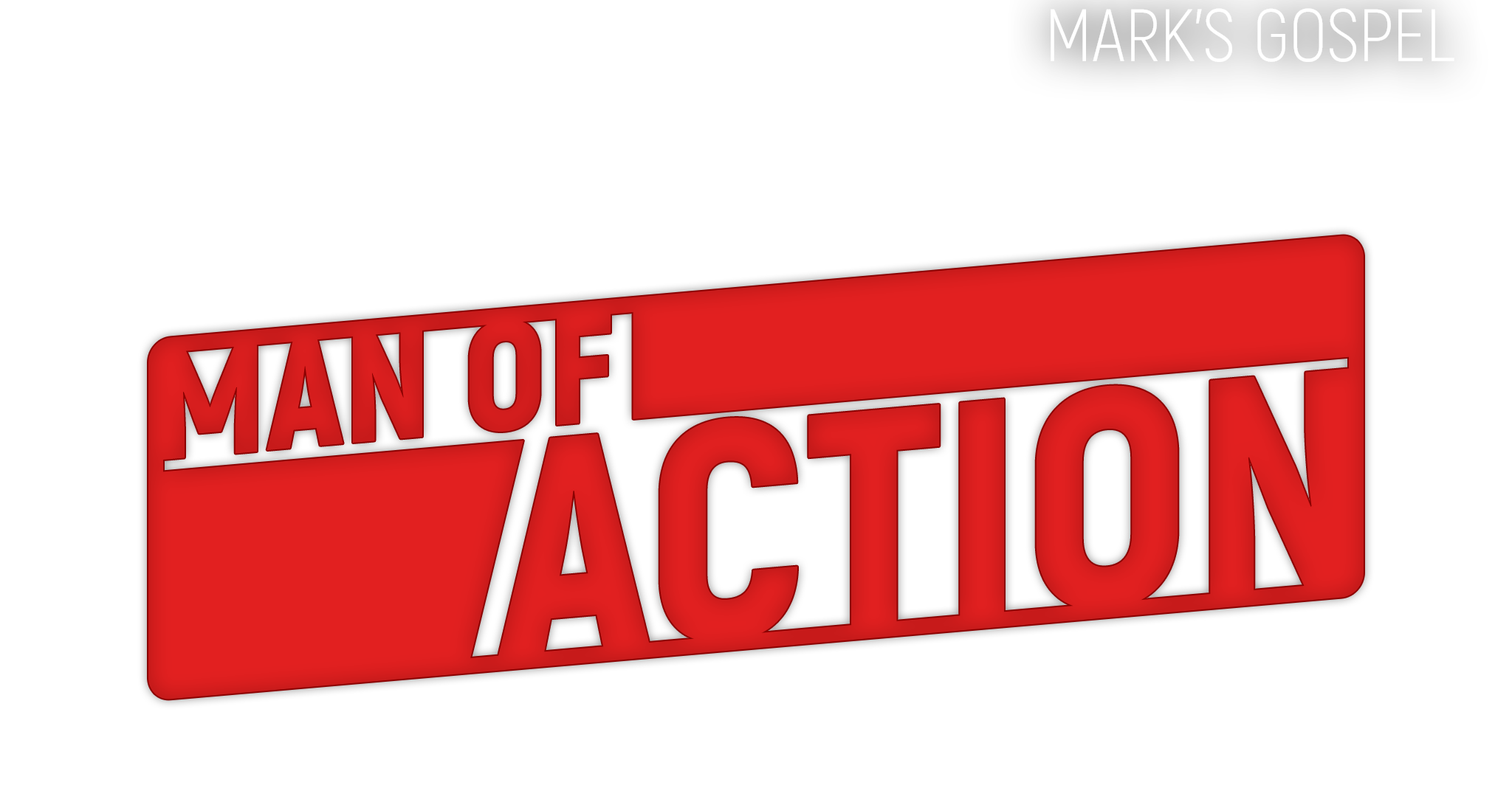Date: Jan. 12, 2020
Mark 10:46-52
Key Verse: Mark 10:47
When he heard that it was Jesus of Nazareth, he began to shout, "Jesus, Son of David, have mercy on me!"
Even though this is the second Sunday of the year, I still want to say Happy New Year to everyone. Everybody is coming back and the semester starts tomorrow. It is 2020 and I remember that not too long ago, 2020 felt like the far-off future. I mean, I remember when the year 2000 seemed like the far-off future, but here we are, almost halfway through the first month of 2020, so be prepared for tons of vision puns this year because this is the only year where we have that perfectly clear 20/20 vision. But, since it is the beginning of the year, many people like to look back at the previous year and reflect on what has happened. We do that when we prepare key verses for the year. We see where we have been and how God has been working in our lives and look forward, prayerfully, to see how we want to grow closer to God in the new year. Now, these aren’t like New Year’s resolutions. Choosing a key verse is done with prayer and it is between you and God. It is how God is leading you. A resolution, on the other hand, is something that you want to change this year. As you probably all know, the number one resolution each year is to lose weight or become healthier, but unfortunately, most people break their resolutions not long after starting them. In fact, there is a National Quitter’s Day which is when most people break their resolutions. It was less of a designated day and more of a day discovered through research. That day is either today, January 12, or next Sunday, January 19. It is a day that is a testament that we need help. We set goals for ourselves, but we tend to fall short of those goals. We don’t have the strength or fortitude to keep those goals. That can make us guilty or depressed. We can feel burdened and we just need for someone to have mercy on us and help us. In today’s passage, there is man who cried out to Jesus for mercy, so let’s see what we can learn.
In the last passage, Jesus was on his way to Jerusalem and his disciples were astonished while others were afraid. They knew the hostile environment that Jesus was entering. The religious leaders in Jerusalem had it out for him and the people were afraid of what they would do to Jesus. However, Jesus didn’t placate them with false assurances. Instead, he told them plainly that he would be arrested, mocked, flogged and even killed, but it was all in service of the salvation of the many. Jesus would be a ransom for those lost in their sin. Even with such a burden of knowledge, Jesus kept moving toward his goal, a cross on a hill.
In our passage today, Jesus is still on his way to Jerusalem. We start out, “Then they came to Jericho. As Jesus and his disciples, together with a large crowd, were leaving the city, a blind man, Bartimaeus (which means ‘son of Timaeus’), was sitting by the roadside begging.” (46) Jesus was approaching Jericho. This Jericho is about five miles west of the Jordan river and fifteen miles in a straight line and twenty-one miles by road northeast of Jerusalem. Now, this Jericho is not the same Jericho that Joshua and the Israelites attacked in the Old Testament. This Jericho was built as a winter palace for Herod the Great two miles south of the Old Testament Jericho. Jesus was getting close to his destination. He had arrived in Judea. Near Jericho, there was a road that many people used on their way to Jerusalem. As Jesus was leaving the city, there was a blind man beside that well-traveled road begging. In those days, people with any disability were not allowed to work and were pretty much forced to beg in order to survive. Here, Mark notes that the man’s name is Bartimaeus. This account is also in Matthew and Luke, but only Mark mentions the blind man’s name. It is an interesting note, because Mark does not just mention the name, but also explains that the man’s name means son of Timaeus. So, this is the only place where Bartimaeus is mentioned, but he is even noted primarily as someone’s son. Some believe that this means that Timaeus was well known in later Christian circles, but others think that it is Bartimaeus that is well known. At any rate, Mark seems to add the name to give additional context to what happens next.
The passage continues, “When he heard that it was Jesus of Nazareth, he began to shout, ‘Jesus, Son of David, have mercy on me!’” (47) Bartimaeus heard the commotion that was being made as Jesus was passing by. A large crowd was going by, and, even though the road was well-travelled by pilgrims to Jerusalem, such a large number of people at one time was unusual. Since the man was blind, he could not see what was going on, but he could hear. Bartimaeus heard that Jesus of Nazareth was passing by and he had to act. We are not sure what he heard, but Bartimaeus must have heard of all the teachings and healings Jesus did throughout his three and a half years of ministry. None of it was a secret, but he was desperate. As soon as he heard that it was Jesus, he cried out, “Jesus, Son of David, have mercy on me!”
Bartimaeus called Jesus Son of David. It is a messianic term denoting the Messiah’s genealogy back to king David. So, Bartimaeus has enough knowledge and faith to make the connection between Jesus and David. What is really interesting is that this connection is very important to Jews, but Mark was writing to Gentiles. The Gentiles did not really care about the connection to David and this is the only time that Mark even mentions Jesus’ connection to David. In fact, Mark mostly used Jesus’ own term for himself the Son of Man. Yet, here, Mark continued the quotation about Jesus, Son of David. But Jesus was more than just a descendant of David, he was the Son of God. As such, it was only Jesus who could help the man, so he cried out for mercy.
The people around him, were deaf to his words. “Many rebuked him and told him to be quiet, but he shouted all the more, ‘Son of David, have mercy on me!’” (48) Bartimaeus was blind, but, really, the people couldn’t see him. They saw him as a beggar and as a nuisance, but they did not see him as a man. They didn’t see him as a person who needed help. They judged him and told him to be quiet. They thought that this blind fellow had no right to cry out to Jesus, so they wanted him silent. Have you ever felt that way? Have you ever felt that people can’t see you, like they can’t see you for who you are? It is crushing and belittling. It makes you feel like less than a person. When I was younger, at my house, when we were leaving, there are many times where I would be the last one out of the house. I would follow closely behind one of my parents or my sister and more often than not, the person in front of me would close the door in my face, like I wasn’t even there. I got so upset when it happened. It frustrated me and it still stings if someone unintentionally does it now. It was belittling and hurtful. Many times, we can just be quiet and let it simmer, but Bartimaeus didn’t let it stifle his voice. He shouted all the more, “Son of David, have mercy on me!” It is amazing that Bartimaeus didn’t just quiet down when rebuked, but he just became louder. He really wanted to get Jesus’ attention. To him, this was a once in a lifetime opportunity and he did not want to squander this chance.
Jesus took notice of him, “Jesus stopped and said, ‘Call him.’ So they called to the blind man, ‘Cheer up! On your feet! He’s calling you.’” (49) Bartimaeus’ persistence paid off. Jesus wanted to see him. This marginalized blind man was getting his chance. After Jesus called for the man, the people following Jesus seemed to have a change of heart. Instead of rebuking Bartimaeus, they are telling him to cheer up. They were the ones putting him down, but now they were telling him to cheer up. They didn’t even apologize for their hurtful words and tone. They didn’t even acknowledge their hurtful words and tone, at all. They were just telling him to cheer up.
The passage continues, “Throwing his cloak aside, he jumped to his feet and came to Jesus.” (50) This cloak was an outer garment, similar to a coat and the man may have been sitting on it while he was begging. When he was called, Bartimaeus threw this cloak aside, jumped to his feet and came to Jesus. It is an unusual bit of detail to include, but it shows Bartimaeus’ immediate response to Jesus’ call. He didn’t wait or waver in his response, but he continued to be bold and approached Jesus. Here Jesus asked the man, “What do you want me to do for you?” (51) What Jesus asks Bartimaeus is the exact same thing he asked James and John in the last passage when they came to him wanting positions of prominence and power. They told Jesus that they wanted for him to do whatever they asked, and Jesus wanted to know what they really wanted. Here, however, Bartimaeus responded, “Rabbi, I want to see.” (51)
Unlike James and John’s request, Bartimaeus just wanted to see. Now, we don’t know if Bartimaeus was born blind or lost his sight during some event in his life. It may have been an accident or disease that took his sight. We really don’t know, but we do know that Bartimaeus was really adamant about gaining or regaining his sight. He was persistent, but he wasn’t pushy or demanding, like James and John were. First, he cried out for mercy and when asked for clarification, said that he just wanted to see. The act of getting his sight was an act of mercy for him. Showing mercy is having compassion or forgiveness toward someone whom it is with one’s power to harm or punish. Bartimaeus was asking Jesus for compassion or forgiveness by having his sight restored. He wasn’t demanding or being selfish. He just wanted some compassion. For all his boldness, it was a simple and honest request.
To Bartimaeus, being blind was he source of much of his hardship. Because of society, he wasn’t treated like a normal person. He was marginalized and treated as less than human. He was shamed and rebuked for so long that his spirit could have been crushed into the ground. In those days, if there was something wrong with you, you must have sinned, and your predicament was God’s punishment for your sin, and Bartimaeus may have thought that was true. Bartimaeus carried a specter of sin around with him and his cry for mercy was to have that specter lifted. His healing would be a sign of God’s forgiveness of his sins and the burden of his heart would roll away.
Our passage concludes, “‘Go,’ said Jesus, ‘your faith has healed you.’ Immediately he received his sight and followed Jesus along the road.” (52) The man was healed through faith. He received his sight and began to follow Jesus. By following Jesus, Bartimaeus showed his spiritual healing on top of receiving his sight. Jesus had healed the whole man, but not just his physical self. It was a far cry from the marginalized blind man that he was just moments before. He could see and the people could see him. In all the healings in Mark’s gospel, it is only Bartimaeus who is named. All of the other healings are anonymous. I think that that is a testament to Bartimaeus being pushed aside, being an outcast, being a nobody, but Jesus saw him as somebody who needed mercy and healing. Jesus saw a person who needed to be restored and not pushed away, a man that needed to be heard and not silenced. That is the compassion of our Savior.
I think that Bartimaeus is a very relatable person, right now. I don’t mean the blind part. I honestly have no idea what it is like to be blind but being marginalized is something that is commonplace. I am certain that most people have felt like they are being pushed down or pushed away at some point in their lives. You may have been crying out in pain for mercy, only to be told to be quiet. You have to suck it up. There are many things that bring us that pain. It is kind of cliché to say that we are more connected to each other than ever through technology, but we have never been lonelier. We are stuck feeling isolated. We are stuck feeling burdened to live up to an image that we show others, but we don’t let people in to see the real person. People are blind to who we are. They have no desire to dig deeper and we are afraid to show our real selves. We are afraid of what people will say. We think that we have to have the perfect Instagram life, but life is messy and not picture perfect. We have struggles and flaws. We ache and become depressed because we think that we are not supposed to ache. We wonder what is wrong with us and just want to hide. We are being crushed by expectation and the reality of life. We see the professional rock climber and his umbrella seller wife have a $1.3 million budget for a house while wondering how we can make ends meet in a rented apartment.
We all have our heartbreaks. We all have our pain points. We have sick family members and impossible decisions to make. We don’t know what to do because we are overwhelmed by everything. We are anxious about life and dread so many things. But there is hope because there is mercy. We have to cry out to Jesus for mercy. We are sinners and are under the devil’s deception about our lives. He tells us that we are dead and there is nothing that we can do about it, but like Bartimaeus, we can cry out for mercy. The rules and law condemn us, but Jesus grants mercy. The law tells us that we failed at life and do not deserve to live any more. The law says that we mess everything up and there is no way that can change. They law says we are useless, helpless and a drain on society. Why should anybody help you? Why should anybody care about you? We are failures; within weeks of making resolutions to better ourselves, we break them. We give up so easily. We are losers that can’t do anything properly. What hope is there for us?
We have to recognize how hopeless we are. We have to realize that we are a disease to everything we touch. And yet, there is a way. There is a way maker, miracle worker, promise keeper, a light in the darkness. His name is Jesus, a name about all other names, more powerful than death, disease, depression or loneliness. We have to know who Jesus is and what he has done for us. We are disease and he is the cure. He died on the cross to give us life and in this passage, he is just days away from his crucifixion. He is days away from completing his mission. He is just days away from solving all the problems of this broken world, because they all stem from sin. Sin has perverted this world for thousands of years, but in an instant the power of sin and death were broken. We were healed through his blood and all of those horrible things that itch in our ears become untrue. Those words from Satan, the condemnation from the law all become moot.
To get to that point, we have to recognize who we are and cry out to Jesus for his mercy, like Bartimaeus. Jesus didn’t just go up to Bartimaeus to heal him. He waited for Bartimaeus to cry out to him. Even then, Jesus said nothing. It wasn’t after Bartimaeus was rebuked but decided to shout out all the more that Jesus called for him. Jesus wanted Bartimaeus to really show his faith, because it was that faith in Jesus that would heal him. Giving up is not faith. We have to cry out, and when we don’t think that Jesus heard us, we have to cry out all the more. We shouldn’t give up, because Jesus does love us. The people couldn’t see this blind man sitting beside the road. They saw a nuisance, but Jesus always saw the man and always wanted to help him, but Bartimaeus had to make a choice to persist. The same holds for our lives. No matter how we are feeling or how alone we are, Jesus does love you. We have to take ownership of the fact that we need mercy. We need Jesus’ compassion on our lives because we can’t do it on our own.







